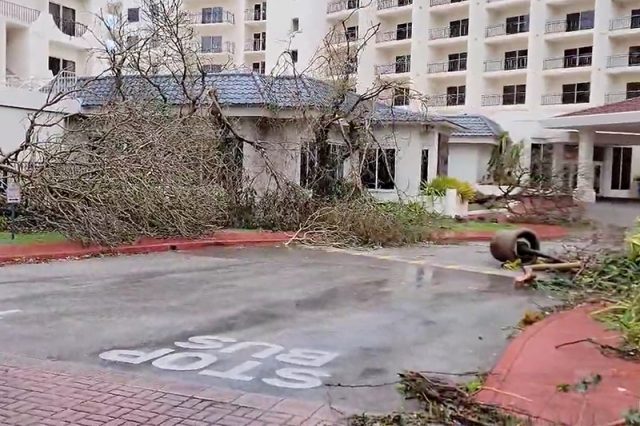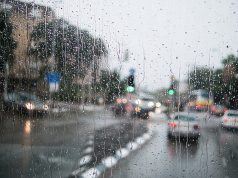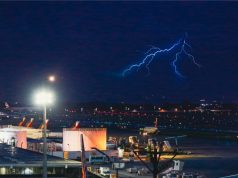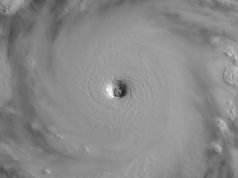
Much of the U.S. Western Pacific territory of Guam was without power and water on Thursday after a typhoon packing ferocious winds and torrential rains battered the island but caused no reported fatalities or major injuries.
Guam residents were ordered to boil their water until further notice as crews repaired generators damaged by Typhoon Mawar, according to local media and the Guam Waterworks Authority.
The typhoon’s 150-mile (241 km) per hour winds downed power lines and trees, causing widespread power outages on the territory, one of the isolated Mariana Islands, about 6,000 miles west of Los Angeles and 2,500 miles east of the Philippines.
Crews were working to restore electricity, giving priority to critical infrastructure such as hospitals and wastewater facilities and then to homes and businesses, Guam Power Authority said in a Facebook post.
At last count on Wednesday afternoon, all but 1,000 of the island’s 52,000 homes and businesses were without power, the power company said. Power company officials were not immediately available for comment on Thursday evening.
None of the 170,000 people who live on Guam was killed or suffered major injuries in the storm. About 980 people were staying at shelters across the island, Guam Homeland Security said in a statement.
“I am so glad we are safe. We have weathered this storm. The worst has gone by,” Governor Lou Leon Guerrero said in a video message to the island’s residents, including about 10,000 U.S. military personnel who work on an array of U.S. bases and installations on the island.
Images posted on social media showed flooded streets, mangled trees and debris strewn across front yards.
The eye of Mawar, one the most powerful storms in decades to strike the island, tracked just north of Guam early Thursday, moving northwest at a sluggish 8 mph, delivering rainfall of up to 2 inches (5 cm) per hour overnight, the U.S. National Weather Service (NWS) said.
Wind speeds placed the storm in Category 4, the second-strongest designation on the Saffir-Simpson Hurricane Wind scale, and just short of Category 5. After passing the island and moving out to sea, the storm intensified to a Super Typhoon with wind speeds of 155 mph.
—Reporting by Brendan O’Brien in Chicago; Editing by Nick Zieminski









